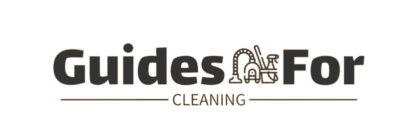Do you have a dental cleaning appointment around the corner? There can be lots of questions about dental cleanings, especially if you haven’t been in a while. Rest assured your teeth will be feeling much cleaner as soon as your appointment is finished. Here are the basics you need to know.
How Long Does a Dental Cleaning Take?
On average, most dental cleanings take about 30-45 minutes. That being said, if you haven’t had a cleaning in a while, the appointment could take up to an hour.
If you schedule your appointments on a regular 6 month appointment schedule, your next appointment will be much faster because there will be much less build up, plaque, and tartar to remove.
If you are looking for tips on improving your oral health, check out this article here for best practices.
What Happens At A Dental Cleaning?
A dental cleaning is a standard appointment where a dental hygienist cleans your teeth and checks for any standard oral health concerns. In addition, a dentist usually checks your teeth at the end of the cleaning to observe any cavities, tooth decay, grinding, or anything else the hygienist noted during their cleaning. There are the four main jobs of the hygienists during the appointment:
- General examination. During this stage the hygienist exams your mouth and notes any areas of concern. This could include cavities, soft spots, or areas of wear on your teeth.
- Next, the hygienist moves to a technique called scaling. During this process the hygienist uses a small hook-like tool to remove build up, plaque and tartar from the teeth. It might feel weird but this is an essential part of a thorough cleaning.
- When the scaling is finishing the hygienist moves to polishing a flossing. At this stage you will probably get a chance to choose what flavor of toothpaste you’d prefer (we recommend mint). After polishing, which is a lot like brushing, they will floss your teeth.
- Finally, your hygienist may offer some sort of fluoride which acts as a protectant for your teeth and keeps the enamel strong. Swish it around and spit it out to keep those pearly whites looking sharp!
In addition, there may be preventative care administered such as fluoride, oral cancer screenings, x-rays, and gum tissue analysis. Just like an annual checkup for your body, the dentist performs a checkup on your mouth and looks for any abnormalities.
How Often Should I Get A Dental Cleaning?
Typically dental cleanings occur every 6 months, or twice per year. The best practice is to schedule your next appointment while you are at the dentist office so that you don’t forget. Once you get in the habit of having your teeth cleaned you won’t want to go without it!
Why Are Dental Cleanings Important?
Like an annual physical, a dental cleaning is the first step in preventative oral health. Think of it like an oil change, where dental cleaning is the basic maintenance required for your mouth to work at peak performance. While missing one appointment probably won’t set back your oral health significantly, a life-long habit of dental cleanings will set you up for good health in the years to come.
Why Does Dental Cleaning Hurt So Much?
This is a question that is often asked but only has one decent answer. Unless you have a medical condition that causes mouth sensitivity, the reason dental cleanings hurt is because you do not either floss or brush enough.
Most people struggle with flossing consistently. It is a hard habit to build and isn’t exactly convenient. If you don’t floss consistently, it can be uncomfortable when the hygienist flosses during the cleaning.
If you don’t like flossing, we recommend trying these Flossing Plackers that make the process a little bit easier.

